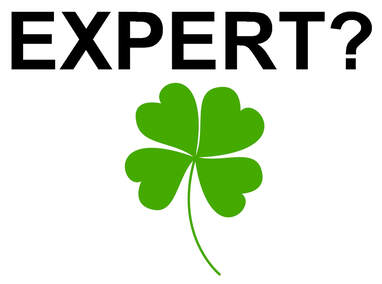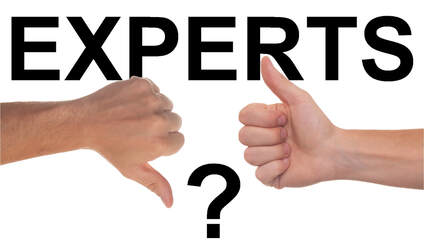 I had just graduated with a PhD and had returned to do science in the developing country that I grew up in. I joined a laboratory that performed basic science research but that also had a service for screening of medical conditions called “inborn errors of metabolism”. These conditions occur when a child is born with a genetic defect in one or more enzymes, which are the proteins responsible for carrying out metabolic conversions of one chemical compound into another. When these enzymes malfunction as a result of a genetic defect, the chemical compounds that they act upon cannot be degraded and accumulate in the body at very high concentrations causing toxicity to many organ systems including the brain. Because my degree was in nutrition with a major in biochemistry, I was considered the “expert” in metabolism, and I was supposed to do consulting work for the service. Although I had never worked specifically in the area of inborn errors of metabolism, I was newly graduated and cocky enough to think that my general training in metabolism would be enough to allow me to make a contribution. In developed countries, newborn children are systematically screened for these genetic defects, because early treatment can ameliorate the pathology. However, in developing countries which have scant resources, many people are reluctant to perform these screenings. Inborn errors of metabolism are rare conditions, and you have to screen thousands of children to find one that has a problem. The director of the laboratory where I worked, and founder of the service, faced an uphill battle to try to convince hospital administrators in the country to join the service and send blood samples from newborn children for us to analyze.
One day, one of the hospitals, which our director was trying to convince to join the service, contacted us with the case of a girl who kept having seizures despite being treated with virtually all anti-seizure medications that they had at their disposal. They were at their wit’s end and suspected that the girl could have an inborn error of metabolism. A blood sample from the girl was sent to our service and after analysis yielded the result that some chemical compounds were elevated in her blood. The director of the service contacted me and asked for my “expert” opinion. I armed myself with naiveté, picked up the textbook that I had used in my biochemistry classes, and looked up the compounds which were elevated in the girl’s blood. When I checked the enzymes required for the metabolism of these compounds, I noticed that a few of them required vitamin C as a cofactor. In other words, the enzymes required vitamin-C to function. When an enzyme which requires a cofactor has its activity reduced due to a genetic defect, a very common strategy is to administer large doses of the cofactor to boost any residual activity of the enzyme. The diagnosis and treatment now seemed obvious to me. I thus stated that the girl probably had a genetic defect of one of these enzymes, and that therefore we should give her large doses of vitamin-C to maximize any leftover enzyme activity. My suggestion was relayed to her doctors in the hospital which proceeded to pump vitamin-C into the girl’s body. A few days later the director of the service contacted me regarding my diagnosis and treatment suggestion. The girl had stopped having seizures and recovered! And not only that, the hospital decided to join the service and send blood samples from newborn children for us to analyze! My boss was impressed. My coworkers were impressed. I, the “expert”, had made the right call! Not only did my suggestion heal a girl, but it was instrumental in convincing hospital administrators to devote resources to working with us! Because of what I did, more children would be screened, and more children with genetic defects would be identified for early treatment, which would help them. And all it had required was me checking my book! It had been sooo easy. Veni, vidi, vici (I came; I saw; I conquered). For about a week I was on cloud 9, full of myself, walking on sunshine: and don’t it feel good! And then it all crashed and burned. When the real experts were contacted (people who had actually dealt with impairments of the enzymes that I thought were affected) they told us that the elevations in the concentration of the compounds we detected were not large enough to indicate a genetic impairment in the enzymes. Rather these experts stated that vitaminc-C is part of the body’s defense mechanisms against toxins (oops, I had not considered that). What probably happened was that the girl was malnourished (and therefore vitamin-C deficient) and she had been exposed to a toxin that her body was not able to clear and which caused the seizures. When we gave her the vitamin-C, her body was able to degrade the toxin, and she got better. I was incredibly lucky. I had arrived at the right treatment for the wrong reasons. So I had to eat a very large slice of humble pie. Thankfully, when notified about the matter, the hospital decided not to pull out, and they continued working with the service. However, I learned a harsh lesson. Even though I had a PhD, I had only a “textbook knowledge” of the field with no practical experience. I was not a real expert, and I had failed to understand that fact. If you are familiar with my blog, by now you have probably figured out what I’m getting at. Today there are individuals with no formal general training in science or practical expertise in any specific field, who are reading the scientific literature and interpreting it to support opinions and ideas which they disseminate on social media, blogs, and podcasts to thousands of people. I had been trained in science. I had a PhD. But because I was not an expert in a specific field, I screwed up. Why do these individuals feel they have the qualifications to do what they are doing? And why do others follow their every utterance as if it were gospel while ignoring what the real experts have to say? The experts are called experts for a reason, and it is folly for people without training to try to replace them. Luck may not always be on your side. Four leaf clover image from OpenClipArt by Firkin is in the public domain and has been modified.
0 Comments
 DYOR DYOR “Do your own research” (DYOR) has become a mantra of our age. Websites and social media personalities dispense this advice on a daily basis about topics ranging from the safety and efficacy of vaccines to global warming. And it makes sense, no? Looking up the facts and making up your own mind about issues such as vaccination or global warming and other things seems to be a reasonable proposition. It also requires you to think and become involved as opposed to being apathetic or passive. Isn’t this what every concerned person and good citizen should do? Well, let me ask you the following question: are you qualified to do your own research regarding scientific topics that require complex specialized knowledge and experience? Training in most areas of science is a process where it often takes more than a decade to master the complexity of the science. And I am not only talking about the theoretical aspects. There is an understanding of the science, the scientific process, and its nuances that you can only gain from performing experiments and/or making observations under the guidance of experienced scientific mentors and within the context of a research group and a research project. So why do those who dispense the “do your own research” advice feel that regular folks are qualified to navigate the intricacy of the biology, chemistry, and physics behind vaccines or global warming and its effects to an extent sufficient to understand them and form valid opinions? Let me answer this question for you. Those who dispense the “do your own research” advice know very well that most people are not qualified to do that, and in fact, they count on it. The real purpose of the “do your own research” advice is to undermine the experts, and get people to accept certain ideas that will make them more likely to uphold the interests of those opposed to science and/or buy their products. The “do your own research” advice doesn’t occur in a vacuum. This advice is often dispensed within the highly biased pages of a website or chat group. It often takes the form of “I’ve read that vaccines cause this terrible thing (link supplied). I don’t know if it’s true, but do your own research”. Or, “I’ve read that climate change data is bogus (link supplied). I don’t know if it’s true, but do your own research”. This “nudge nudge wink wink” environment is not conducive to an evenhanded appraisal of the evidence that will produce a well-informed opinion. Rather it is nothing more than a recipe to lure people down the rabbit hole of their biases by cherry-picking the articles they read and the researchers they follow. Just consider the complexity involved in “doing your own research”. You found a scientific article that says one thing. Do you understand the science? Is the methodology sound? Are the experimental protocols acceptable? Were the correct statistical analyses performed? Do the conclusions follow from the results? Was it published in a reputable journal? Has it been retracted? Has it been cited by other scientists? Has it been criticized? Do other scientists agree? Are there other articles that say the opposite? How many? How do you find them? What is their quality? How do you decide who is right and what is sound? Can you figure this out impartially, or are you biased? And if you are biased, what steps will you take to prevent your biases from affecting your research? Do the particular scientists that you follow make sense to you? What are their credentials? Where do they work? How many publications do they have, and what has been their impact? Are they active in their scientific fields? Do others disagree with them? Why? Are these scientists you follow considered mainstream or are they a fringe? Do these scientists claim there are “conspiracies” and rant against the “scientific establishment”? Do these scientists try to convince their scientific peers, or have they instead taken their case to “the people”? These questions are daunting to non-scientists attempting to make sense of the scientific literature, the nuances and dynamics of scientists and their research, and the social context in which it occurs. But here is the amazing thing. This problem is not limited to highly complex scientific topics. In the years of the Trump presidency, through the pandemic, and leading up to the attack on the Capitol on January 6th of 2022, millions of people “did their own research” and concluded that Mr. Trump was fighting a cabal of satanic pedophiles in the government, businesses, and media who kidnaped tens of thousands of children, tortured them, and drank their blood. Here the issue was not bias against science, it was bias against common sense! The QAnon phenomenon is a prime example of what can happen when people “do their own research”. If some individuals could manipulate ordinary people into “doing their own research” and accepting the fantastic premises of QAnon, think about how much easier it is to manipulate people into accepting distorted views about vaccines or climate change. The experts are called experts for a reason, and it is folly to try to disregard what they say. So should we forgo examining what scientists publish and accept everything they tell us? Of course not! Scientists can make mistakes or delude themselves, and some scientists may even be dishonest. Additionally, some people in the pseudosciences can misrepresent their discipline as valid and themselves as experts. Instead of focusing on individual scientists, look for the consensus within a scientific field. Instead of trying to go it alone, contact scientists or science popularizers who are respected within the scientific community. Ask to be referred to legitimate science websites and avoid those that rant against the scientific establishment insulting scientists and peddling innuendo, exaggerations, and conspiracy theories. If you are going to do your own research, value what the majority of experts have to say about the matter. Image by Alejandro Escamilla from Wikipedia Commons is the public domain.  I have had a few exchanges with all sorts of irrational skeptics who advocate conspiracy theories, from global warming and COVID-19 severity deniers to anti-vaccination advocates, creationists, and chemtrail and flat Earth proponents. One of the things I’ve noted about these skeptics, the vast majority of whom have never personally studied or trained as scientists, is that they believe that they know more than the experts. To justify this stance, these individuals employ several rationalizations. First and foremost, irrational skeptics argue that there is a conspiracy. They claim that the majority of scientists who accept the consensus in fields that have become hot button issues are either corrupt individuals who have sold out and misrepresented or faked their data, or cowardly, mistaken, or dumb persons who go along with the herd. It follows then that there is no point in listening to the experts as whatever they say is tainted. Thus the training, experience, publications, ideas, and achievements of scientists become irrelevant.
Second, irrational skeptics do support those scientists who criticize the consensus in these fields. Presumably, in the eyes of these skeptics, the mere action of disagreeing with their peers makes these contrarian scientists right. This is why, more often than not, irrational skeptics end up supporting individuals who are at best misguided and at worst frauds. For example, those opposed to vaccination supported the infamous Andrew Wakefield who put forward the notion that the measles, mumps, rubella (MMR) vaccine is linked to autism (which it isn’t). Wakefield convinced many parents not to vaccinate their children leading to a surge in measles and mumps in many areas. This is not to say that all individuals that buck the trend in their fields are misguided. Some are honest people who want to examine the data on their own terms. Such was the case of Richard Muller. He questioned global warming and for a while he was a darling of the global warming denialists. But Dr. Muller was not an irrational skeptic. He did what no irrational skeptic would dare to do. He got funds, assembled a team that examined the data of global warming on their own, and indeed confirmed that global warming was real! As a result of this, scores of his formers supporters turned on him. The irrational skeptics will support specific scientists only if their views are the same as theirs. Third, having disavowed the majority of scientists and embraced those with extreme views, irrational skeptics then feel that, with no scientific training whatsoever, they are competent to read the scientific literature and figure out what is and isn’t valid. This has been humorously phrased as getting your degree from “Google University”. Scientists have to go through a learning process that takes more than a decade and involves training with other scientists just to bring them up to speed in their fields, and teach them how to think about science and how to evaluate what they read. A scientific article is not valid by the mere fact that it got published. There are a lot of mediocre publications in the scientific literature with questionable data and ideas, and this is even more so today with the advent of the so-called predatory journals and pre-print publishing. When scientists read the scientific literature, they evaluate what they read based on their knowledge and, more importantly, their experience. By the time scientists reach intellectual maturity they have experienced what it is to be wrong countless times and also witnessed the mistakes of others. Thus, most scientists can recognize when the evidence does not favor their ideas, and this ability is essential to avoid fooling themselves. People not trained as scientists have not “lived” what it is to be wrong within the context of scientific research, and when they take it upon themselves to read the scientific literature without any formal training or practical experience they don’t recognize when the evidence shows they are wrong. They are fooling themselves, and they have become so impervious to evidence that they cannot be proven to be wrong. Thus their ideas and arguments have ceased to be scientific. If there is no way you can be wrong, then there is no way you can be right. This is not to say that the word of individual experts should be taken as dogma, especially when they pontificate about things outside of their field of expertise. A lot of scientist have said stupid things and advocated false or silly ideas. However, when the vast majority of scientists in a scientific field arrive at a consensus supported by a sufficiently-developed scientific theory, this is something that should be valued and respected by us as individuals and as a society. Nothing good can come from questioning the honesty of the experts and berating their training, skills, expertise, and achievements just because what they are finding runs contrary to the beliefs of some people. And if on top of that these very same people also assume that they know more than the experts and that they are capable of navigating the subtleties and complexities of the scientific literature, then we open the door to the acceptance of all sorts of error and quackery. Image by Tumisu from pixabay is free for commercial use and was modified. |
Details
Categories
All
Archives
June 2024
|
 RSS Feed
RSS Feed